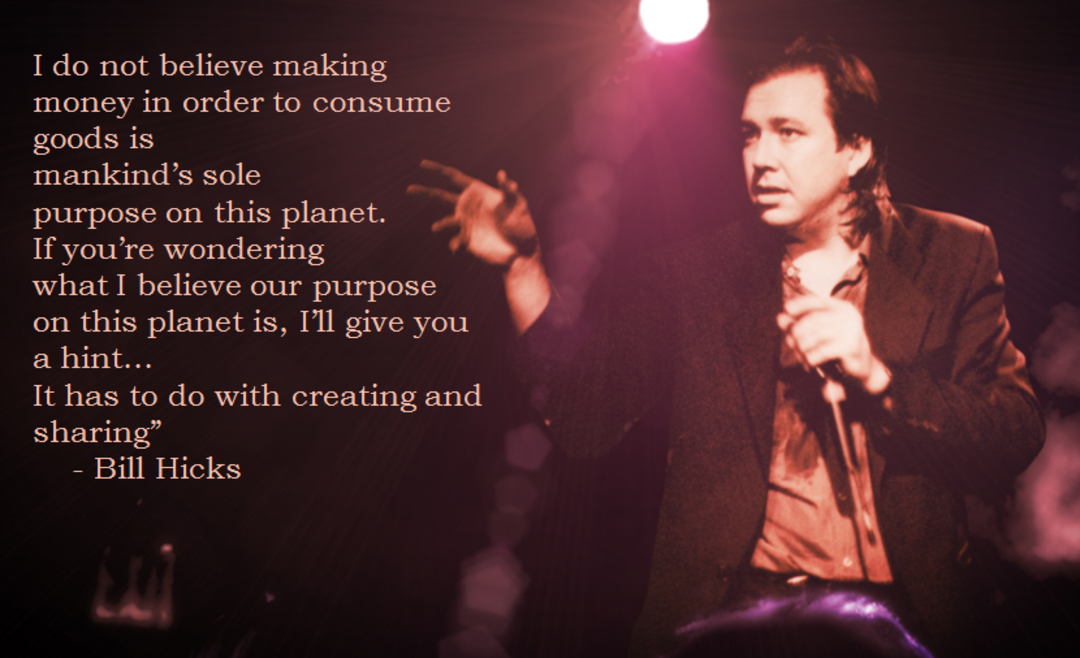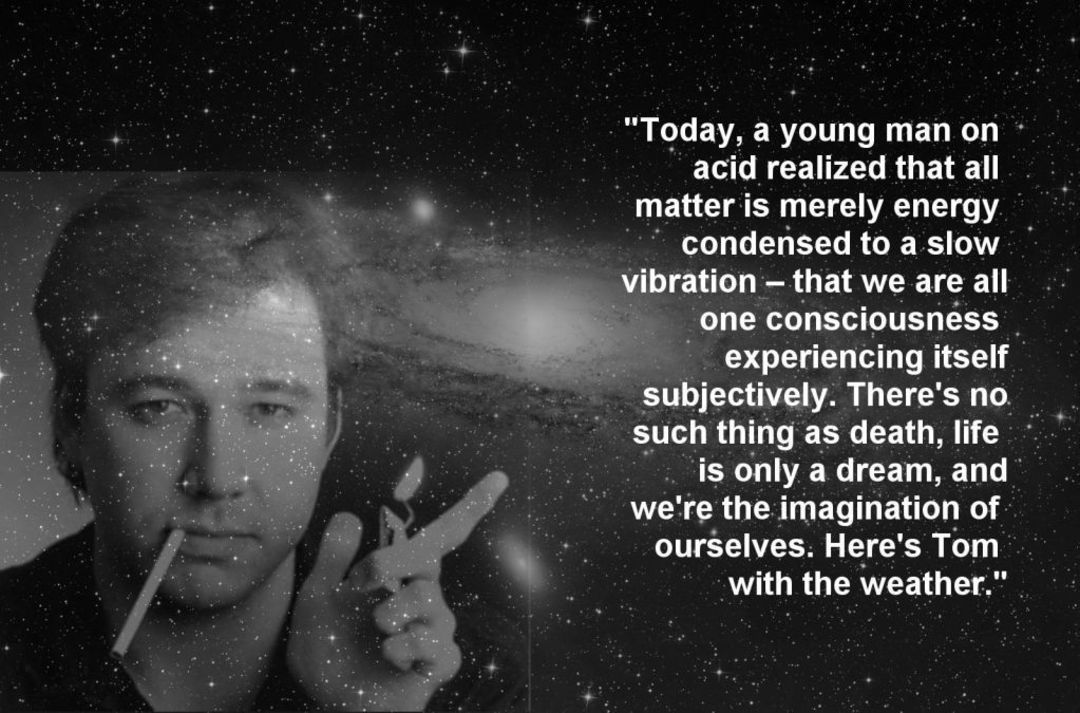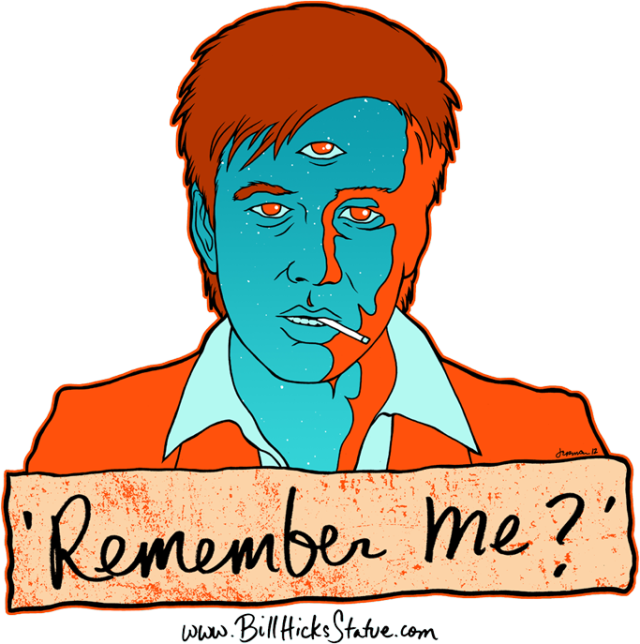
Bill Hicks died young, at age 32, of pancreatic cancer that killed him less than a year after he was diagnosed. At each of his stand-up performances in those last few months of his life, growing weaker in body yet more determined in spirit, the comedian would joke with the audience that this performance would be his last. This was a joke within itself, however: no one except Hicks’s close friends and family knew he was even sick. And that’s how he wanted to keep it; Hicks had more important things he wanted his audiences to focus on.
Throughout his life, Hicks—born in Valdosta, Georgia but raised in Houston from the age of 7—crafted a style of comedy that was dark, thought-provoking, and subversive. He was Lewis Black before Black. He was Denis Leary on Leary’s best day to the Nth power. He was Louis C.K. with an even sharper edge. He was Lenny Bruce for Generation X. Although raised in relative comfort in Memorial, Hicks—who graduated from Stratford High School (as arguably the school’s most famous alumni to date)—spent his career railing against blind American consumerism, whether of goods and products or of mass media.

Those who remember Hicks’s blistering on-stage style, where his subtle humor took a backseat to dazzling displays of fire-and-brimstone sermons, would perhaps be surprised to learn that Hicks was calmer off-stage. Incredibly close to his family and not one to forget his roots, Hicks remained life-long friends with his childhood buddies until his death. A recently released documentary, American: The Bill Hicks Story, wove together interviews of Hicks’s family and friends with VHS footage of movies Hicks shot as a teenager and his earliest stand-up performances at Houston’s famous Comedy Workshop on South Shepherd.
The Comedy Workshop is where Hicks met Sam Kinison, a fellow angry young man who would also go on to die young after a brief but fierce time on earth cut short by a car accident in 1992. Although Kinison wasn’t born in Houston, his brand of humor—which he debuted in Houston, and which dared the audience to endure a litany of angry, brutal, often ugly rants—profoundly influenced Hicks. Both Hicks and Kinison would no doubt be angered to learn that the Comedy Workshop is now an upscale dry cleaner with drive-through service.
Despite his short time on earth, Hicks left a legacy unequalled by most comedians. Unlike other peers who also died young—Mitch Hedberg, Andy Kaufman, even Sam Kinison—Hicks was as devoted to honing a unique style of comedy as he was to preaching philosophies that are still embraced to this day. Never content to just “be funny,” Hicks—much like Lenny Bruce before him—pushed the limits of what could still be considered stand-up comedy. He wanted his audiences to think. He wanted them to know that love and peace were possible, but not without difficult self-examination and serious action. He wanted people to leave a performance changed; he didn’t care if they laughed or not.

Hicks raged about politics, religion, conspicuous consumption, the military-industrial complex, prisons, cigarettes, the true nature of freedom, the mind-altering power of drugs, and all the things he thought were ruining American society or, worse, had the potential to make America a better place yet were banned by either law or a dogmatic, hypocritical code of morality. Often clad entirely in black, often smoking a cigarette, Hicks haunted the stage like the Ghost of Christmas Future, bellowing with all his might for people to change—now—before it was too late.
“Is there a point to my act?” he once asked an audience, before quickly answering his own rhetorical question. “I would say there’s a point to my act. I have to.” With this, Hicks launched into one of his most famous speeches:
The world is like a ride in an amusement park, and when you choose to go on it you think it’s real because that’s how powerful our minds are. The ride goes up and down, around and around, it has thrills and chills, and it’s very brightly colored, and it’s very loud, and it’s fun for a while. Many people have been on the ride a long time, and they begin to wonder, “Hey, is this real, or is this just a ride?” And other people have remembered, and they come back to us and say, “Hey, don’t worry; don’t be afraid, ever, because this is just a ride.” And we … kill those people. “Shut him up! I’ve got a lot invested in this ride, shut him up! Look at my furrows of worry, look at my big bank account, and my family. This has to be real.” It’s just a ride. But we always kill the good guys who try and tell us that, you ever notice that? And let the demons run amok … But it doesn’t matter, because it’s just a ride. And we can change it any time we want. It’s only a choice. No effort, no work, no job, no savings of money. Just a simple choice, right now, between fear and love. The eyes of fear want you to put bigger locks on your doors, buy guns, close yourself off. The eyes of love instead see all of us as one. Here’s what we can do to change the world, right now, to a better ride. Take all that money we spend on weapons and defenses each year and instead spend it feeding and clothing and educating the poor of the world, which it would pay for many times over, not one human being excluded, and we could explore space, together, both inner and outer, forever, in peace.
Hicks’s legacy today is seen in everything from the planned Bill Hicks statue here in Houston—conceived of by Free Press founder Omar Afra and sculpted by David Adickes—to tributes from across the world. Radiohead’s 1995 album The Bends was dedicated to Hicks, while British MP Stephen Pound read a motion on the 10th anniversary of Hicks’s death in 2004 in Parliament, stating: “That this House notes with sadness the 10th anniversary of the death of Bill Hicks, on 26th February 1994, at the age of 33 [sic]; recalls his assertion that his words would be a bullet in the heart of consumerism, capitalism and the American Dream; and mourns the passing of one of the few people who may be mentioned as being worth [sic] of inclusion with Lenny Bruce in any list of unflinching and painfully honest political philosophers.” Nearly 20 years after his death, a Bill Hicks biopic from Russell Crowe—yes, that Russell Crowe—is currently in the works.
Hicks would undoubtedly hate all of this. Especially the statue.
Perhaps the Houstonian’s greatest legacy are his final words before getting off this big roller coaster—words that were a reminder of not only his own underlying passions (which don’t include politicans rhapsodizing about him, nor bands dedicating albums to his memory), but a reminder to all of us left behind: “I left in love, in laughter, and in truth and wherever truth, love and laughter abide, I am there in spirit.”
